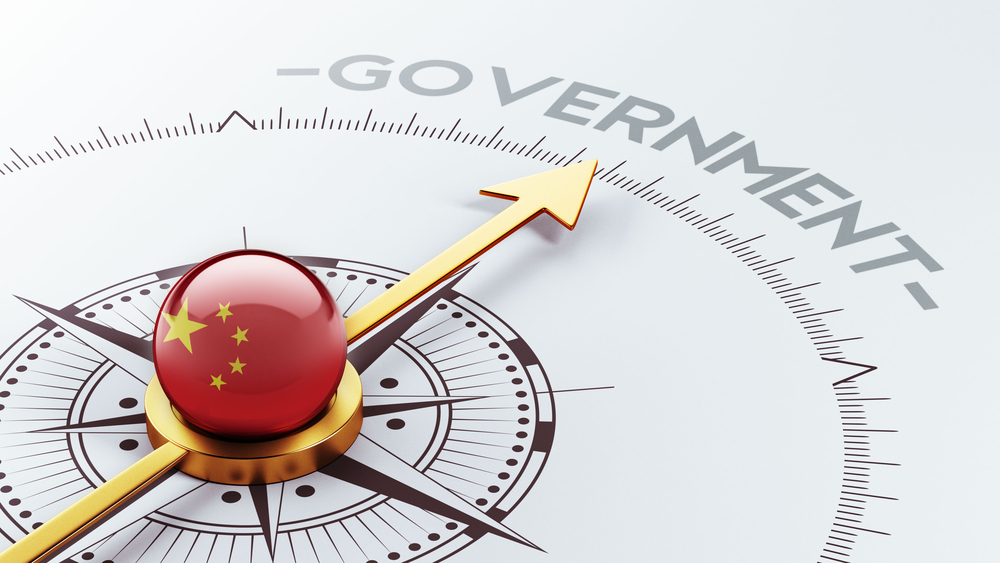Chairman of Everything

Please note that we are not authorised to provide any investment advice. The content on this page is for information purposes only.
It ain’t easy being an autocrat.
Take China’s current President and Party Secretary, Xi Jinping. Since coming to power, Xi has shown himself to be unhindered by former norms of collective decision-making, and collective blame.
Rather than portraying all decisions as made unanimously by senior leaders, each of whom is responsible for a different area of governance; Chinese media portrays Xi as making decisions and heading nearly every major policy reform and advisory group.
It ain’t easy being an autocrat.
Take China’s current President and Party Secretary, Xi Jinping. Since coming to power, Xi has shown himself to be unhindered by former norms of collective decision-making, and collective blame.
Rather than portraying all decisions as made unanimously by senior leaders, each of whom is responsible for a different area of governance; Chinese media portrays Xi as making decisions and heading nearly every major policy reform and advisory group.
It is hard to say how much this portrayal is correct — the ‘decisions are argued and made in secret’ norm remains untouched — but either way, it is a major reversal of former norms of collective governance.
Today, Xi is the face, heart and soul of all Chinese reform. Xi is the public face of China’s anti-corruption campaign, of China’s new foreign policy initiatives and of China’s ‘new normal’ economy. He has become the so-called ‘Chairman of Everything’.
To some, Xi’s decisiveness is worthy of praise. High-profile Chinese financier Eric X. Li, for example, argues that: ‘In terms of the vision that he has articulated to the Chinese people, where he wants to take the country, and what he’s been able to execute in the last 18 months, it [Xi’s rule] has been beyond anyone’s imagination or expectations’.
Therefore, Xi may currently be taking the plaudits for being a decisive and successful leader. But what will happen when he makes a bad decision? By putting his face to China’s policies, Xi is more likely to be personally associated with any missteps.
Personal accountability thus has its limitations. As Party Secretary, Xi has to not only govern China, but also manage an organisation of 87 million members. The top-down nature of this system means that Xi needs to guide others through his public speeches, pronouncements and statements. However, being too prescriptive in one’s guidance is likely to create bureaucratic losers. It also makes it easier for any potential scapegoat in the system to just say that they were following Xi’s orders.
This risk of individual accountability is why a personification of policy is very rare in the Chinese system. It is usually safer to assume public leadership of an area through ex officio means, and to make decisions reluctantly only when there is no other choice.
Normally in autocratic systems, collective decision-making reduces the number who loses from any reform. It is safer for the leader to leave different interests competing for his attention than to clarify responsibilities and policy directions once and for all.
In addition, it allows the leader to avoid being accountable by the people for any policy missteps. Should a problem occur, the autocratic leader can blame a convenient underling, or others lower down in the system, and retain their own popular legitimacy?
Collective decision-making is also popular because it may hinder an autocrat’s ability to weigh up costs and benefits. The many actors competing for the top leader’s attention will not always want to deliver bad news, and you do not want to be the leader left taking the blame should you receive bad advice. A lack of independent analysis stung Xi, caught off guard by the failure of internal Taiwan analysts to predict accurately the results of the 2014 Taiwan election.
Therefore, to sum up, to take personal command of reform, Xi must arbitrate the many conflicting interests within the Chinese system. Actors throughout the system to justify any decision they may make will use any decision he makes. Xi also has to balance this with the reality that, in the public’s eyes, credit or blame will be personally apportioned to him. In addition, finally, Xi has to juggle all these problems while accepting that he will have conflicting sources of information on any decision.
Who would be an autocrat?
There are not a lot of options for Xi to resolve this snafu. He probably thinks he can ride the situation out. While he risks popular unrest should one of the reforms he is personifying take an unpopular turn, most of his policies so far have been very popular. Moreover, it is hard to tell what is genuinely ‘popular’ or not.
This does not mean that the international community will like Xi’s reforms. With the possible exception of Hua Guofeng, party leaders normally begin their rule by ‘backing away from tolerance’ and cracking down on liberal expression. Xi so far has been no exception.
Xi will likely walk a delicate path on China’s international diplomacy, especially with Japan. Should there be an incident official actors and especially one that makes China look weak can receive blame, it will reflect badly on Xi. So expect lots of strong official rhetoric, more ambiguity and less actual leadership on all sides, (these problems are not just limited to China). Decisiveness has its downsides.
Will Xi always be obeyed? is republished with permission from East Asia Forum




